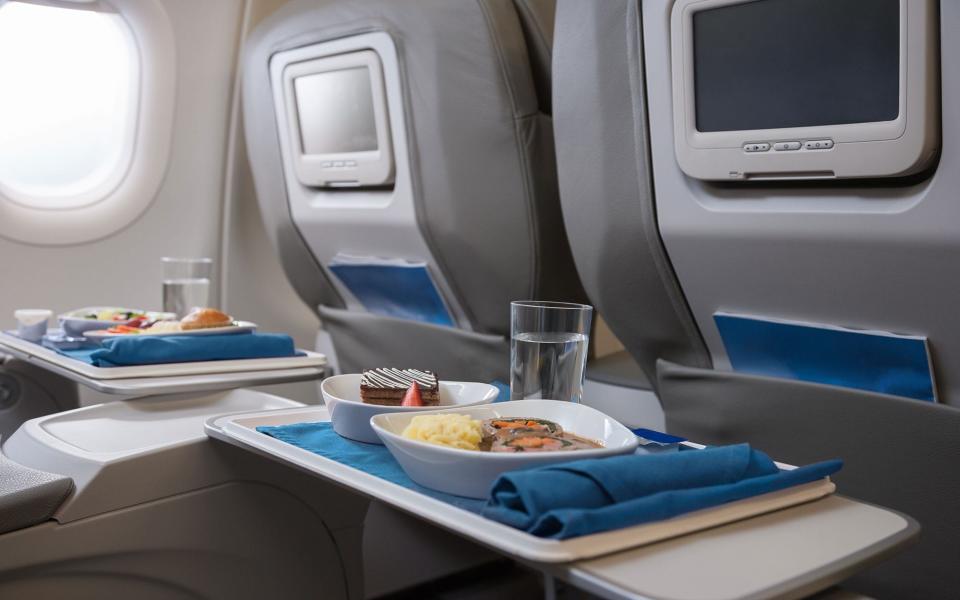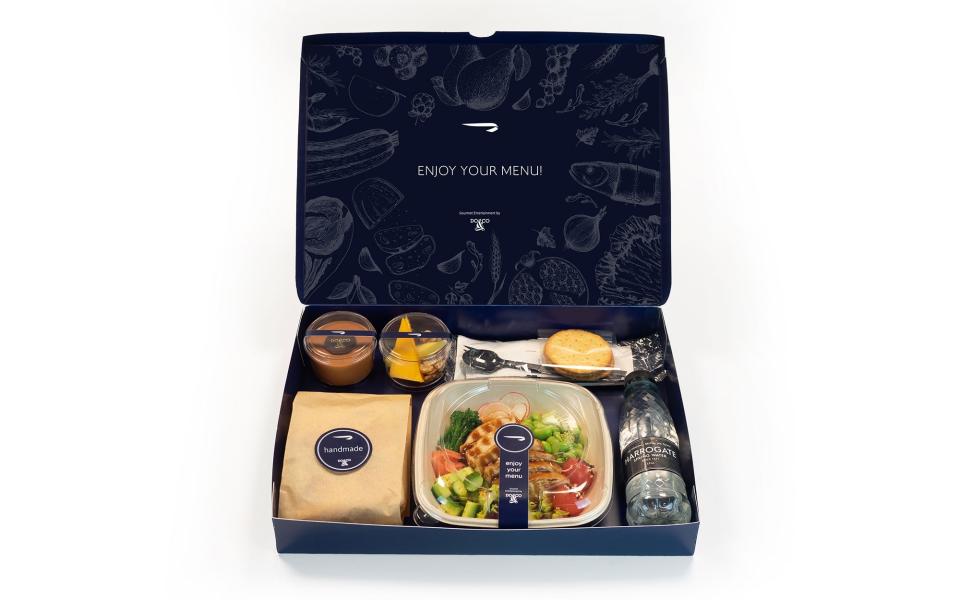Covid fears force airlines to replace booze and hot food with all-in-one snack bags

As countries around the world open their borders and flights resume after months of lockdown, one hot issue (well, maybe lukewarm issue) is the future of the in-flight meal.
With many airlines now adopting stringent new health and hygiene precautions, including pre-flight checks and the compulsory use of face masks, will coronavirus also consign plane food to the waste disposal unit of history?
By and large the answer appears to be no, but that isn’t to say big changes aren’t afoot in the way we eat when flying. Different airlines are taking different approaches to the challenge of keeping passengers fed and watered, many with stop-gap solutions while they wait for cleared guidance from regulators.
So what can I eat?
For British Airways, the answer comes in a meal box. The UK flag carrier has unveiled two new food packs: long-haul passengers are issued with a box containing salad, a hot entrée or sandwich, and a dessert; short-haul passengers in business or first class receive something similar (with a side of anti-bacterial gel and hand wipes), while those in economy are given a smaller box with a snack and a bottle of water.
“Like all airlines, we had to make temporary adjustments to our on-board catering while we worked on a new solution with our catering suppliers that follows guidance from regulators, minimising interactions between our customers and crew,” said a BA spokesperson.
Emirates has taken a similar route, serving in-flight meals (sandwich, snack and dessert) in sealed packages, while its Gulf rival, Etihad, is sticking to its convection ovens. The airline has issued an assurance to its customers: “Our catering facilities go through rigorous hygiene testing before any of our meals are prepared.
“Our teams undergo regular testing and thermal screening, and are not permitted to enter the catering unit if they are living in shared or non-company provided accommodation.”

Lufthansa is also largely continuing as before. The German carrier is suspending some services, including its regional menu concept, and passengers in economy will have to make do with vegetarian meals. Passengers in higher categories will still have a choice of dishes, with the only discernible difference being an increase in packaging.
Business- and first-class passengers at American Airlines might notice something’s amiss though: the airline has announced that their meals will no longer come out in courses, but on a single tray.
Several airlines, including Qantas, KLM and Norwegian, are drastically cutting back on their food and beverage offerings, particularly on domestic and regional flights, with light snacks, fruit and water the only options available. The same three have recommended passengers bring their own food and drink, although all liquids still need to comply with airport screening requirements.
Far more austere change have occurred over in the US. If you’re flying economy with United Airlines, you’ll find it has replaced its meals with ‘all-in-one’ snack bags on domestic flights of more than two hours. The lucky recipients have a stroopwafel, a bag of pretzels, a small bottle of water and a sanitiser wipe to see them through to their destination.
Can I still have a drink?
For many, the most noticeable change will be the lack of alcoholic beverages served on flights. A number of airlines have stopped serving alcohol altogether, reasoning that the fewer diuretics passengers consume while in the air, the less they will need to avail themselves of the on-board facilities, thus reducing the chance of any infection spreading via a toilet flush, tap or door handle.
The airlines that have confirmed they are halting the sale of alcohol include EasyJet, Virgin Atlantic and KLM.
Of course, not all airlines are operating ‘dry flights’. Ryanair and Wizz Air are both still running in-flight trolley services selling pre-packed food and drink, including alcoholic beverages, as well as selling duty-free items. Despite efforts to keep contact to a minimum, the companies have come under fire from Which?, the consumer magazine, which claims that the trolleys fly in the face of Government guidelines drawn up to prevent the spread of coronavirus.
A spokesperson for Wizz Air said: “For the airline’s onboard services, all products are packaged and all payments are encouraged to be contactless. Passengers and crew are required to wear face masks, with crew also required to wear gloves.”

